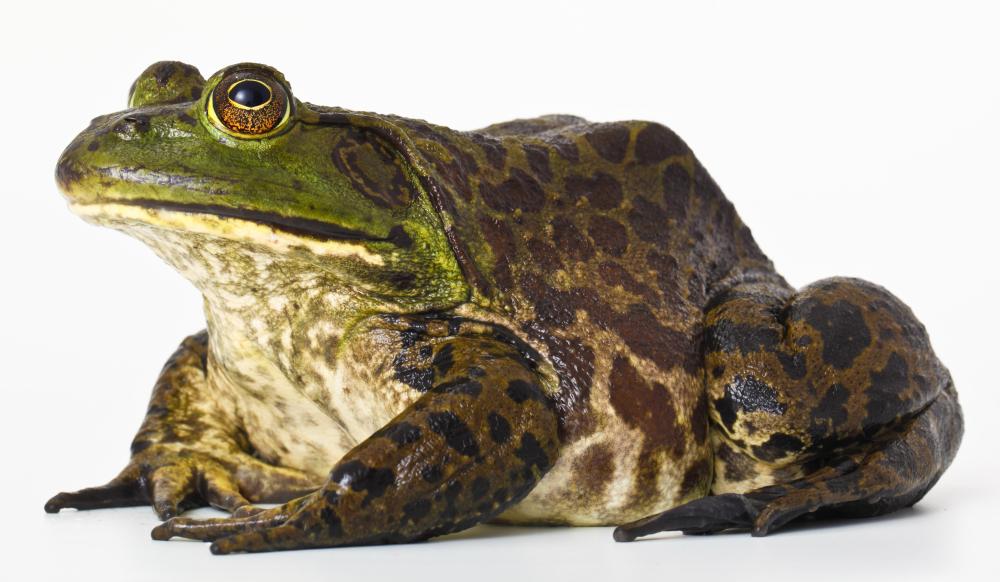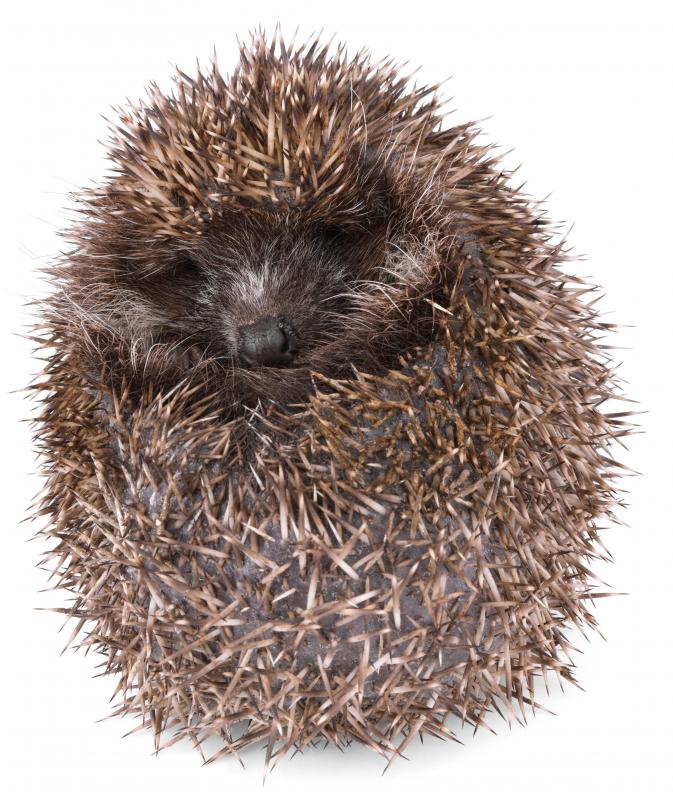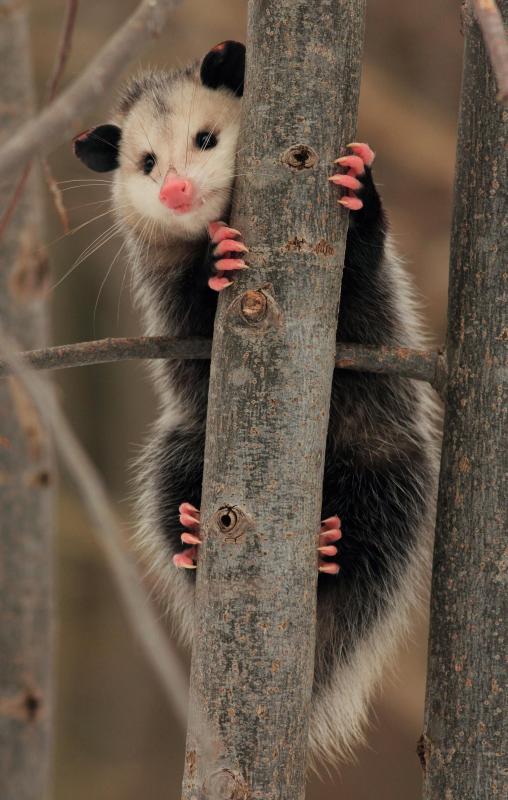At AllThingsNature, we're committed to delivering accurate, trustworthy information. Our expert-authored content is rigorously fact-checked and sourced from credible authorities. Discover how we uphold the highest standards in providing you with reliable knowledge.
Which Animals Hibernate?
Both warm-blooded and cold-blooded animals hibernate, including some species of chipmunks, hedgehogs, frogs, turtles, and even some fish. The majority of animals that hibernate are found in the northern and extreme southern areas of the globe — the colder climates of the world. The variety is quite extensive and also includes hamsters, opossums, and badgers. Bears, perhaps the most famous of such animals, don't undergo quite as deep a sleep as many other animals, so some scientists don't consider it true hibernation.
Warm-Blooded Animals

Many small warm-blooded animals hibernate during the winter, including many rodents like the dormouse, ground squirrel, and woodchuck. These animals are required to hibernate for part of the year, and once this process begins, they are extremely difficult to wake up. The body temperature of a hazel dormouse, for example, drops to just above freezing, and its heart beats only a few times each minute. A few of these animals will wake up periodically to eat, but others stay in this deep sleep for up to six months. Other warm-blooded animals that hibernate include mouse lemurs and mountain pygmy possums.

Most birds do not truly hibernate, although the common poorwill, a species in the family called nightjars or nighthawks, does. Found in the Southwestern US and Mexico, this bird can spend weeks or months during the winter in an inactive state. Other birds can go into a state known as torpor, during which they slow their metabolism and body temperature, but this usually only lasts for a short period of time, often overnight. In many cases, hibernation is described as long-term torpor.

Bears are the most commonly identified animals that sleep through the winter months; however, many scientists do not classify the bear as a true hibernator because it doesn't go through the same degree of physiological changes that other hibernating animals do. For example, while a bear's heart rate and breathing slows, its body temperature doesn't fall very much. Along with some bats, bears are also relatively easy to wake up. Most bears deliver their young during the winter, and so the mother bear must become somewhat conscious during the birthing process to properly tend to her cubs.
Cold-Blooded Animals

Insects, reptiles and other species, including some fish, also hibernate. Since they cannot maintain their body temperatures the way that warm-blooded animals do, many cold-blooded animals seek refuge in hollow trees, caves, or underground to protect themselves during the winter. Some wetland creatures — as well as fish — often bury themselves in mud at the bottom of a lake or pond. This not only protects the creature from the elements, it prevents the current from washing the creature downstream and guards it from becoming a meal for other predators that do not hibernate.

Some experts draw a distinction between the winter dormancy periods of warm- and cold-blooded animals. Rather than "hibernation," they refer to it as "brumation" when it occurs in reptiles. The main difference is the energy source; mammals eat extra food before hibernating and use the stored fat to get them through the winter, while reptiles survive on glycogen, an energy storage molecule. For practical purposes, however, the two states are very similar.
How Hibernation Works

Hibernation allows an animal to slow its life support systems tremendously, often having only one heart beat occur over several minutes. This altered metabolism not only saves energy, it prevents the animal's body from requiring additional food and water while it sleeps. The animal's body temperature also drops, and the majority of the warmth is concentrated near and around the vital organs. In some animals, such as the opossum, the young are born while the mother sleeps; the newborns make their way into a pouch on the mother's underbelly, where they nurse throughout the remainder of the mother's hibernation period.

In some instances, the weather can turn unusually warm early in the season, bringing the animals out of their hibernating state much earlier than usual. This can often prove to be life-threatening for the animal, because food, such as grasses and berries, are not yet available. In this case, the animals may become starved and malnourished. Such a season can also be life-threatening to newborns as their mother's milk may dry up due to her lack of nutrition.
Frequently Asked Questions
What is hibernation and why do animals hibernate?

Hibernation is a state of inactivity and metabolic depression in endotherms, allowing animals to conserve energy during periods when food is scarce, typically in winter. Animals hibernate to survive the cold months when resources are limited, by significantly lowering their body temperature, heart rate, breathing rate, and metabolic rate.
Which animals are known to hibernate?
Common hibernators include bears, ground squirrels, hedgehogs, bats, and certain species of rodents, amphibians, and insects. For example, the little brown bat enters hibernation to survive the winter when insects are not available, while the wood frog astonishingly freezes and thaws with its environment.
How long can hibernation last?
Hibernation periods vary widely among species. Some animals, like the woodchuck, may hibernate for up to six months, while others, such as bears, may have shorter hibernation periods of a few weeks to a couple of months, depending on regional climate and individual metabolic needs.
Do all bears hibernate, and how do they do it?
Not all bears hibernate; it depends on their habitat and food availability. For instance, bears in colder climates with harsh winters are more likely to hibernate. During hibernation, bears enter a state of torpor, where their body temperature drops slightly, and their metabolism slows down, allowing them to live off their fat reserves.
Can hibernation happen outside of the winter months?
Yes, a similar state called aestivation occurs during hot and dry periods, primarily in invertebrates, reptiles, and amphibians. Aestivation helps animals survive extreme heat and drought by reducing metabolic rates and water loss, similar to how hibernation helps animals conserve energy during the cold.
How do animals prepare for hibernation?
Animals prepare for hibernation by eating extra food and storing it as body fat which will be used as energy during their dormant period. Some, like the American black bear, can gain up to 30 pounds of body weight per week before hibernation. They also create or find a suitable hibernaculum, a safe and stable environment to hibernate, such as caves, burrows, or hollowed-out trees.
AS FEATURED ON:
AS FEATURED ON:


















Discussion Comments
Yes they do. Butterflies rock.
can butterflies hibernate?
Are butterflies animals?
is their any psychological answer regarding hibernating of animals?
i was wondering the same, anon46191. Can people hibernate? that would be interesting.
why do animals hibernate?
i think animals should not hibernate.
Does every animal hibernate?
do bees hibernate?
Cold-blooded animals always hibernate.
do animals wake up in february?
how does environment affect hibernating animals?
do all animals who hibernate or hibernate in just one place?
We have an animal that collects rocks in the night time and stores them under our barbecue. If we remove the rocks, the next morning about 50 small rocks have been replaced. What animal carries and stores rocks in Henderson, Nevada?
Can box turtles hibernate?
do raccoons hibernate?
i wonder if people can hibernate?
when do animals hibernate?
at what temperature do spiders hibernate nd does scorpions hibernate
of course chimpanzees don't hibernate, they don't need to because they don't live in the cold.
What birds hibernate?
where do these animals live that hibernate? are there any that live in the tropical rainforest?
can yaks hibernate???
Yes, um, can you make a list of ten animals that always, "always" being a keyword, hibernate??? It would really help!
Can chimpanzees hibernate?
Post your comments